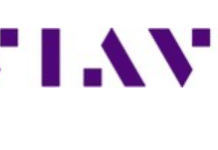FileCloud, a cloud-agnostic Enterprise File Sync and Sharing platform (EFSS) announced ‘Pattern Search’. It enable administrators to discover, manage sensitive data and to increase the probability of mitigating General Data Protection Regulation (GDPR) violations of enterprise level companies.
With FileCloud, enterprises can control and be aware of where the data is stored and processed. This control aids enterprises in their GDPR compliance efforts. It support organisations to adhere to the wide requirements of GDPR including user consent requirement, to search for content across all users, data portability and special accounts with audit and search privileges for Data Protection Officers (DPOs).
A smart solution
Many consumer-grade solutions are scrambling to meet GDPR’s strict regulations hence the new leading EFSS platform offers a complete solution to identify the personal data to meet GDPR requirements. With this new Pattern Search feature, administrators and auditors can centrally look up sensitive data and instantly identify if any files have been shared inappropriately.
IT and system administrators can now search for common data types using built-in pattern identifiers including e-mail addresses, phone numbers, and credit cards. In addition to this, the product team has created templates to search for complex patterns such as license plate numbers, driver’s licenses and national identification numbers.
By allowing organisations to discover sensitive data, it can be categorised appropriately using metadata, can be stored and shared with the right access control. Pattern Search is currently in beta and will be available during Q3 2018.
Violating GDPR can impose hefty penalties
GDPR stipulates that all personal data of EU residents must be stored and processed securely. It also allow users to request access to any information a company possesses on them. Under these new regulations, many different data types are categorised as personal, leaving enterprise organisations with information scattered across file servers and clouds unaware or unable to properly hold and process their data responsibilities. In turn, this leaves businesses open to hefty non-compliance penalties of four percent of a company’s revenue.













































































